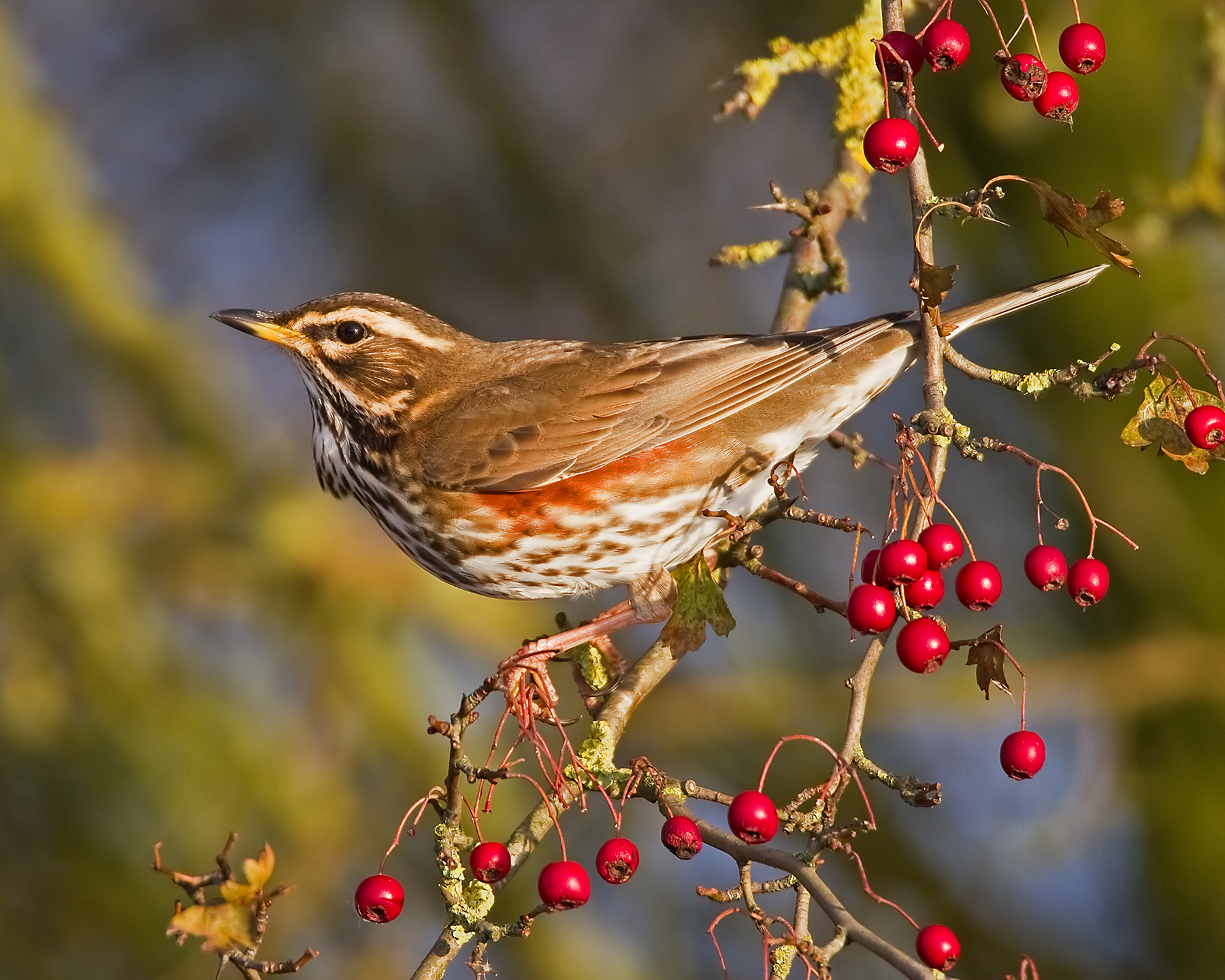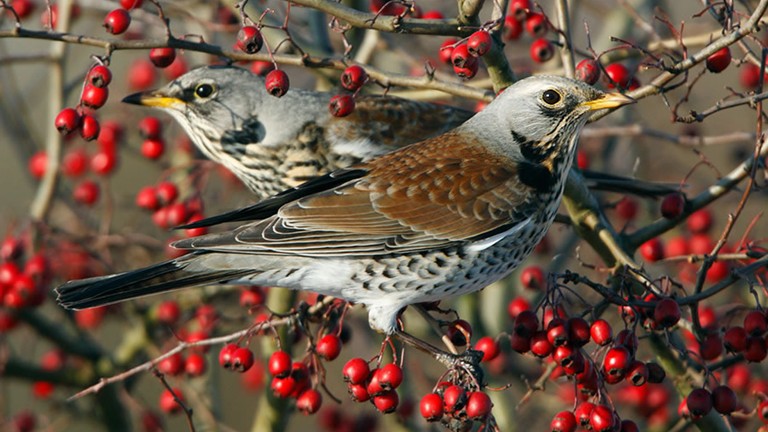Just as swallows and swifts herald the beginning of summer, the fieldfares and redwings are a sure sign that winter is approaching. And, whilst we all miss our summer aerial acrobats, we should celebrate the arrival of these attractive winter thrushes.
 Redwings (left, photo RSPB) are our smallest thrush, and so named after the red coloration beneath the wings. This can be seen on the flanks whilst this merry little bird is poking about looking for tasty morsels in the fields.
Redwings (left, photo RSPB) are our smallest thrush, and so named after the red coloration beneath the wings. This can be seen on the flanks whilst this merry little bird is poking about looking for tasty morsels in the fields.
Fieldfares (below, photo RSPB) are rather larger, approaching the size of the mistle thrush with which they are often confused. You can tell them apart by the fieldfare's grey head and rump, which contrast strongly with its chestnut back and wings and the black tail.
Both breed in colder climes such as northern Europe and Russia, and most have to cross the North Sea to reach our shores. Peak winter traffic fills our skies in October when the food source in their breeding grounds becomes scarce.

Both species can be seen in the fields of the Mid Arun Valley feeding together, sometimes forming loose flocks of a hundred birds or more, and often accompanied by starlings. It is quite a sight to see these birds en masse gleaning a field free of invertebrates. Redwings probe around for beetles, flies, and caterpillars; and fieldfares mostly for larger fare such as grubs and worms; with both turning to berries when the ground is frozen. The plentiful hedgerows, shaws and woodland margins with shrubs laden with berries is good news for the redwings for they are the first of the thrushes to perish in lean years, due to their smaller size.
Like blackbirds, they will also feast on apples or crab apples. Should this winter be a harsh one, then rotten fruit can save lives. No need for fancy apparatus such as bird tables, for both species will feed on the ground. Apples and pears hurled haphazardly about is the perfect way to ensure that everyone gets a look in, for fieldfares, like their mistle thrush cousins, are known to vigorously guard their food!
